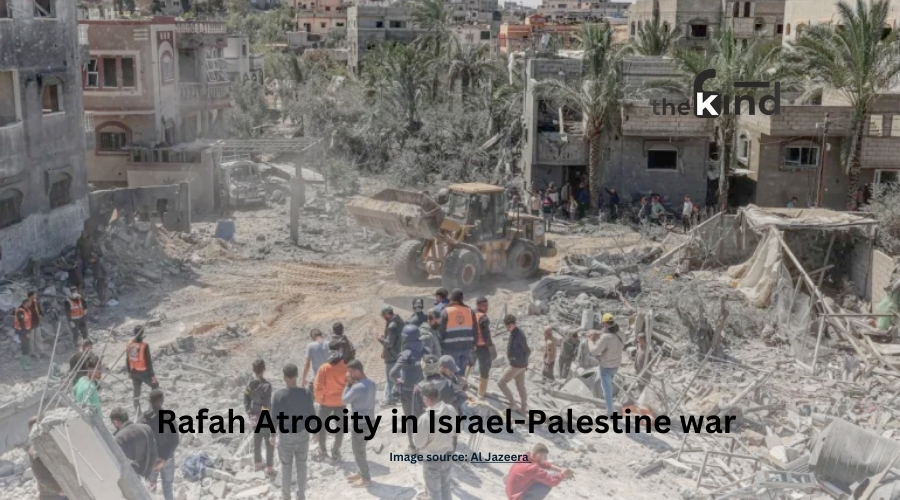Share this
The term “Rafah genocide” refers to recent allegations and reports of mass civilian casualties in the southern Gaza city of Rafah, stemming from Israeli military operations. The conflict has resulted in widespread destruction and significant loss of life, prompting international outcry and legal actions.
Background and Context
Rafah, a densely populated area on Gaza’s border with Egypt, has been a focal point in the ongoing Israeli-Palestinian conflict. Recently, the Israeli Defense Forces (IDF) have conducted extensive operations in Rafah, ostensibly targeting Hamas militants. However, these operations have resulted in high civilian casualties and extensive property damage.
Civilian Impact and Allegations
Human rights organizations, including Amnesty International, have documented numerous instances of civilian casualties and destruction in Rafah. Reports highlight cases where entire families were killed during airstrikes on residential buildings, which were believed to be safe havens from the conflict. For example, the strike on the Zu’rub family home killed 22 civilians, including 11 children. Such incidents have raised serious concerns about the proportionality and legality of the Israeli actions under international law.
Legal and International Response
In response to the violence, South Africa has brought a case against Israel to the International Court of Justice (ICJ), accusing it of genocide and violations of the Genocide Convention. South Africa’s case emphasizes the need for Israel to cease its military operations and allow unhindered humanitarian access to Gaza.
The UN High Commissioner for Human Rights, Volker Türk, has also warned of potential atrocity crimes if the incursion continues, highlighting the dire humanitarian situation with millions of people displaced and critical shortages of supplies【8†source】.
Israel’s Defense
Israel has defended its actions by asserting that Hamas uses civilian areas as shields and that their military operations are necessary for national security. Israeli officials have contested the genocide charges, calling them unfounded and stressing their efforts to minimize civilian harm through evacuation notices and support for humanitarian efforts.
International Concerns and Humanitarian Crisis
The international community, including various Western nations, has urged Israel to comply with international law and allow humanitarian aid into Gaza. The situation in Rafah has exacerbated the already critical humanitarian crisis in Gaza, with the UN warning of potential famine and severe shortages of medical supplies and shelter【8†source】.
Conclusion
The situation in Rafah underscores the complexity and tragedy of the Israeli-Palestinian conflict, where civilian lives are caught in the crossfire. The legal battles and international reactions reflect the broader struggle to address and resolve the deep-seated issues fueling this ongoing conflict. The term “Rafah genocide” captures the severity of the humanitarian disaster unfolding in the region, emphasizing the urgent need for a peaceful and just resolution.

